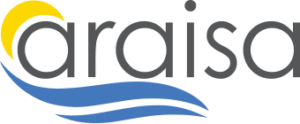Recherche avec les personnes nouvellement arrivées – quelques pratiques réfléchies
octobre 22, 2024

ARAISA, en partenariat avec la Chaire Jarislowsky de l’Université Memorial, a récemment eu l’occasion de mener une recherche auprès des FR et des personnes nouvellement arrivées dans la région de l’Atlantique. Le projet comprenait des entretiens avec le personnel et des groupes de discussion avec les nouveaux et nouvelles arrivantes. Grâce à ces activités, j’ai beaucoup appris sur les besoins et les expériences de ces personnes dans la région.
Ce projet m’a également incitée à réfléchir de manière critique à la recherche impliquant des personnes nouvellement arrivées. Les groupes de discussion, en particulier, m’ont encouragée à réfléchir à une recherche respectueuse, engageante et bénéfique à la fois pour les équipes de recherche et les personnes participantes. J’aimerais vous faire part de quelques réflexions et pratiques prometteuses issues de ce processus et susceptibles d’être utiles à d’autres équipes de recherche.
- Ethics. Ethics review is an integral – and in many cases mandatory – part of the research process. Its ultimate purpose is to protect research participants and the communities they belong to. As such, every aspect of project design – methods, data collection tools, knowledge mobilization, etc. – should be created with participants in mind. You can find more information about research ethics here. Ethics should be approached in partnership with communities whenever possible. Communities should be actively involved in the design and development of research projects. Participants should understand the purpose of the research and be aware of any risks involved. And research findings should be shared with communities in ways that are culturally appropriate and easy to understand.
- Language. Research should be communicated as clearly as possible. Speak at a pace that is appropriate for participants. Even when working with fluent English or French speakers, it is important to avoid jargon and technical language. Consent forms, interview guides, and surveys should be written in plain language. Instead of a detailed and technical consent form, for example, it may be preferable to read a plain-language statement at the beginning of interviews or focus groups.
- Interprétation et traduction. Les personnes qui participent ont-elles besoin d’une interprétation ou d’une traduction pour s’engager pleinement ? Fournissez aux interprètes (ainsi qu’aux personnes participantes) des formulaires de consentement, des guides de questions et d’autres documents avant le début des activités de recherche. Si possible, fournissez leur ces documents dans leur langue maternelle. Veillez également à ce que les interprètes aient une rémunération pour leur temps et leur expertise.
- Compensation. Participants are not just providing their time but also sharing their experiences and expertise. Ensure they are fairly compensated. Compensation should be enough that people feel valued for their contributions, but it should not be so great that participants feel obliged to participate. Compensation should also be appropriate and accessible. If providing participants with gift cards, for example, the format may be relevant. Physical gift cards may be preferable to virtual ones; not only are physical cards immediate and tangible, but they are also necessary for participants with limited computer literacy.
- Scheduling. Consider how scheduling will impact participant availability. Will participants already be on site for other services or programs? Will research activities occur during school or work hours? Will participants require childcare?
- Les enfants et la garde d’enfants. Tout le monde n’a pas accès à des services de garde d’enfants. Lorsque vous menez des entretiens et des groupes de discussion avec des adultes, tenez compte du fait que des enfants peuvent également être présents. Les livres de coloriage et autres divertissements adaptés aux enfants sont un bon moyen de maintenir les activités de recherche sur la bonne voie.
- Snacks. Coffee, hot chocolate, muffins, donuts, veggie platters – food is a simple way to show appreciation. Bring more than you think you need. (Chain coffee shops are great for convenience and general appeal, but snacks can also be an opportunity to support local businesses.)
- Silence. Pauses or breaks in the conversation are invaluable for qualitative researchers. People often need time to digest thoughts (and when working with interpreters, they also need time to interpret). Extroverts may be comfortable jumping into a conversation, but introverts may wait for a natural pause before speaking. Researchers should respect and accommodate a range of engagement styles.
La recherche ne se limite pas à la collecte de données ; il s’agit également d’établir des relations et de faire entendre sa voix. Les entretiens et les groupes de discussion sont particulièrement importants car ils permettent aux personnes nouvellement arrivées de s’exprimer sur les services, les programmes et les politiques qui les concernent directement. Bien qu’il y ait de nombreux facteurs à prendre en compte, il n’y a pas qu’une seule bonne façon de faire de la recherche. Avez-vous rencontré d’autres pratiques prometteuses en matière de recherche avec les personnes nouvellement arrivées que vous souhaiteriez partager ? Si c’est le cas, veuillez m’envoyer un courriel à l’adresse suivante : jchalmers@araisa.ca

About the Author
Jason Chalmers
Jason Chalmers holds a PhD in Sociology from the University of Alberta and was a Postdoctoral Fellow in the School of Community and Public Affairs at Concordia University. As an interdisciplinary researcher, Jason draws on diverse methodologies and is particularly inspired by creative and community-based practice. Jason’s research interests include Canada’s immigration history, Indigenous-settler relations, and social inequality.
You can reach Jason at jchalmers@araisa.ca
